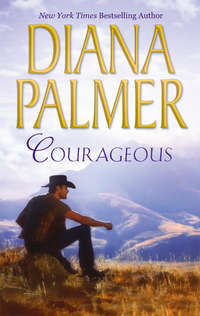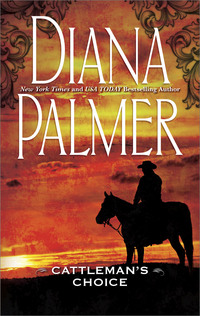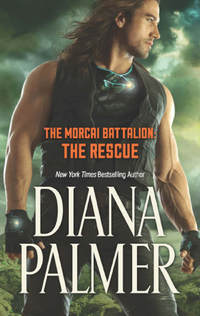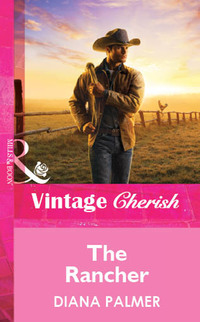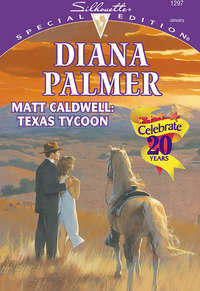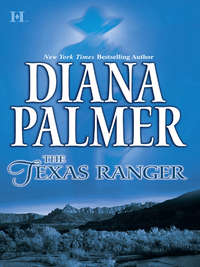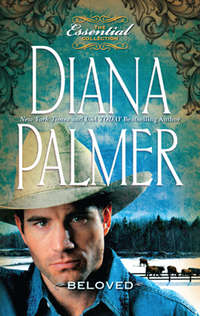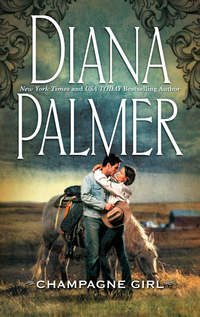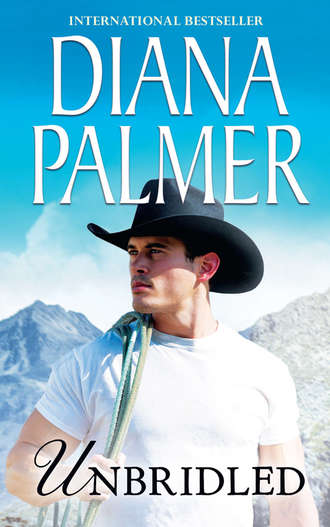
Полная версия
Unbridled
Her father, Ryan Wesley, had been a lifelong Catholic. Her mother had been a staunch Methodist. But the differences in faith hadn’t dulled the feeling her parents had for each other. It was truly a love match. They’d met in grammar school. They’d always known that they’d marry one day and have kids.
Sunny smiled at the memory. Her mother had loved to take out the family album and sit around the apartment with Sunny and Mark and tell them the stories that went with the wealth of photographs going back to Sandra’s own childhood, and Ryan’s. They’d been very close after the accident, so it had hurt terribly when Sunny lost her mother and brother in a tragedy that still had the power to bring tears to her eyes six years afterward.
She walked slowly to the front of the church and lit candles for all three of them. She looked up at the pulpit. She’d come with her father to Mass from time to time, just as she attended services with her mother at the local Methodist church. It had been faith that kept her going when she was ready to throw up her hands and just sit and give up. She truly believed that everything had a purpose, even tragedies that seemed without one.
She stood in front of the candles. She’d left her hair loose, since she wasn’t at work. It flowed down her back in a thick, pale curtain around the black dress and coat she was wearing off duty. Most women wore pantsuits when they attended services, but Sunny had stayed with her grandmother after school every day when Ryan and Sandra were working. After Mark came along, he stayed with her as well. Their grandmother had always worn dresses to church and funeral homes, and she instilled that custom in Sunny from childhood.
It had been a blow when the old lady fell suddenly to the floor with a stroke and nothing known to medical science could save her. She’d died in the Hal Marshall Medical Center, in fact, next door to the children’s hospital with the same name where Sunny worked. The woman had been a fixture in San Antonio society, the widow of one of the city’s best loved police officers who’d died on the job. Her funeral had been attended by dozens of people, and the flowers had covered the area around the pulpit. It had made her family proud, to see how much people loved and respected her.
In fact, Sunny’s family had been some of the first settlers in south Texas, immigrating from Georgia in the aftermath of the Civil War. The Wesleys were a founding family.
All those thoughts buzzed in her mind, all those memories tugged at her heart, while she watched the candles burn bright in the darkness of the great cathedral, the oldest in the city. It was founded in 1731 by Canary Islanders, although construction of the great edifice only began in 1749. It had an amazing history.
She heard the heavy front door open, but she didn’t turn. Many people who weren’t even Catholic came to light candles in memory of lost loved ones. It was rare for anyone to be alone for long in the church.
She heard a deep, melodic voice calling to a priest, and deep laughter following as the men conversed. Sunny couldn’t hear what they were talking about. Her mind was drifting into the past, into happier days, happier times, when the holidays had meant shopping for a special Christmas tree and cooking cakes and pies and turkey in the little house outside the city where her family had lived before her father’s death.
She said a silent prayer as she stood at the altar, her brown eyes sad and quiet.
Footsteps sounded just behind her, echoing in the cavernous depths of the church. She knew the sound of footwear. Those were boots. She smiled to herself. A cowboy, probably, stopping to light a candle for someone...
“A strange place to find you, rubia,” came a familiar laughing voice. It was oddly soft, almost affectionate.
She turned and looked up, her breath catching. It was the man in the shepherd’s coat, the gorgeous man who’d taken her onto the dance floor at the Christmas party.
“Oh,” she stammered, flushing. “Hello.”
He studied her for a moment before he replied. “Hello.” He glanced at the candles. “I come here every Christmas season to light them, for my people,” he said quietly. “You, too?”
She turned her attention back to the candles, nodding. “Yes. My mother and father. And my little brother,” she said softly.
He scowled. “All of them?”
“Yes,” she said quietly. “My whole family.” She forced a smile. “My father went here all his life. My mother was Methodist. They were both stubborn, so I went to services at both places when I was little. I learned the Mass in Spanish, because that’s how la Santa Misa is said here.”
“My father brought me here when I was a boy, too,” he replied. He didn’t add that he’d once brought his own son, Antonio, who was eleven. But now, the boy didn’t want any part of religion. He wasn’t keen on his father, either. Since the death of Ruiz’s wife, three years ago, the relationship between him and his son was difficult, to say the least.
“It wasn’t because you’re, well, because you’re Latin,” she stammered. “The dance, I mean. I...I...”
He looked down at her with an oddly affectionate expression. “I know. It was because you didn’t think such a gorgeous man would want to dance with somebody like you, is what you told one of the nurses,” he said outrageously.
Her face went scarlet. She turned, her only thought to escape, but he was in front of her, towering over her.
“No, don’t run away,” he said softly. “I’m not embarrassed, so why should you be?”
She looked up, her eyes wide and turbulent.
“And there’s nothing wrong with you,” he added in a deep, tender tone.
She bit her lip. “The room was full of pretty women...”
“They all look alike to me,” he said, suddenly serious. “Young men look at what’s on the outside. I look deeper.”
She could smell the cologne he wore. It was as attractive as he was. She kept her eyes down, nervous and uncertain.
“You work at a children’s hospital,” he said, by way of explanation.
“Yes. The night shift, on the pediatric ward.”
“That’s why I haven’t seen you before,” he mused. “I spend most of my time at the hospital in the emergency room, either there or at the general hospital next door.” His face hardened. “We see a lot of children injured by gangs and parents.”
That brought her eyes up, wide and questioning on his handsome face. “Gangs?” she blurted out.
He pursed his sensual lips and pulled back the shepherd’s coat over his broad chest to reveal a silver star.
“Oh,” she stammered. “You’re a Texas Ranger!”
“For six years,” he said, smiling. “Didn’t you notice the gun, when we danced?” he teased, nodding toward the .45 automatic in a holster on his wide, hand-tooled belt.
“Well, no,” she said. She was lost in his black eyes. They shimmered like onyx in the light of the candles.
“Who are you?” he asked gently.
“I’m Suna,” she said. “Suna Wesley. But I’m called Sunny.”
He smiled slowly. “Sunny. It suits you.”
She laughed self-consciously. “You’re Ruiz,” she said, recalling what one of the physicians had called him.
He nodded. “John Ruiz,” he said.
She studied his face, seeing the lines and hardness of it. It was a face that smiled through adversity. It had character as much as male beauty. “Your job must be hard sometimes.”
“Like yours,” he agreed. “You lost a patient on your ward yesterday.”
She fought tears. She managed to nod.
“I have a cousin who works in the hospital,” he said, not adding that his son spent a lot of afternoons after school in the cafeteria until his cousin-by-marriage got off work and could drive him down to Ruiz’s ranch in Jacobsville. The cousin, Rosa, lived in a boarding house in nearby Comanche Wells. She, like John, commuted to San Antonio to work. “She said that the whole nursing staff was in mourning. It’s sad to lose a child.”
She twisted her purse in her hands. “We’re supposed to stand apart from emotion on the job,” she said.
“Yeah. Me, too. But you get involved, when people are grieving. I’ve got a widow right now who’s hoping for an arrest in her case. Some wild-eyed fool shot her husband outside a convenience store for ten dollars and change. She’s got two little boys.” His face was grim. “I’ll find the man who did it,” he added quietly, his black eyes flashing. “And he’ll go up for a long time.”
“I hope you catch him.”
“Didn’t you hear?” he asked, his mood lightening. “We always get our man.”
She frowned. “I thought that was the Canadian Mounties.”
He shrugged. “We’re all on the same side of the law,” he said, his black eyes twinkling. “So we can borrow catchphrases from them.”
She laughed softly. “I guess so.”
There was a loud buzz. He grimaced and pulled his cell phone out of a leather holder on his belt. He noted the caller and answered it. “Ruiz,” he said, suddenly all business. “Yeah. When? Right now? Give me five minutes.” He paused and laughed. “I’ll make sure I hit all the lights green. No more tickets. Honest. Sure.” He hung up. “A new case. I gotta go. See you, rubia.”
She smiled shyly. Her heart felt lighter than air. “See you.”
He cocked his head. “Go home and find something to watch on TV. There’s a rerun of Scrooged,” he added, referring to a Bill Murray movie that had become something of a cult classic around the holidays.
She laughed. “I think I have it memorized already.”
“Me, too. It’s a great film.”
“Yes, it is.”
He searched her eyes slowly, watching her flush. She acted like a green girl. Why hadn’t he noticed that at the party? She was shy. It made him feel oddly protective. She drew him, when he hadn’t paid attention to women in years, not since he’d lost Maria. He wondered what it was about her that made him feel hungry. She wasn’t beautiful. She was small breasted and tall, almost elegant. But that hair, that gorgeous, beautiful, sexy hair, made her far more attractive than she realized.
“Well, see you,” he said, and forced himself to smile and walk away.
Before she could reply, he was headed out the door onto the street.
* * *
She thought about him when she got home and turned on the television. What a strange coincidence, running into him in a church unexpectedly. Someone had told him what she said about him. She flushed and then laughed, self-consciously. It had been a little embarrassing, but he was so uninhibited. It hadn’t bothered him at all. She ground her teeth at the memory of how he’d taken her shy withdrawal. It was probably just as well that he knew the truth, even if it made her squirm. She’d found him devastating. And she didn’t prefer men with a paler complexion, she mused. He was perfect. Absolutely perfect.
Was he married? She wanted to know more about him. But if she started asking questions, it would get back to him, just as her embarrassing disclosure had. Maybe someone who knew him would talk about him and she could eavesdrop. Or maybe, she thought, and her heart raced, she might see him again.
That possibility made her warm all over. He was strong and handsome and he made her feel things she’d never felt.
She hoped that he wasn’t married. But as she thought it, she withdrew mentally from any hope of romance. She couldn’t tell him why she spent her life alone, why she discouraged men from even asking her out.
She couldn’t tell him that she wasn’t what she seemed to be at all. The humiliation would be too much to bear.
No. Better to be alone than to have him back away from her. She could never tell him the truth. It broke her heart to realize that the attraction she felt had no future. She didn’t dare get involved with anyone.
She got ready for bed and thought again of little Bess and the tragedy that had sent her to the cathedral for comfort. Poor Bess. Her poor mother. Tears trailed down her cheeks as she closed her eyes and tried to sleep.
TWO
“What have we got?” John asked the San Antonio policeman he knew who’d phoned him for assistance. John was a specialist in gang warfare.
“A mess,” the patrolman sighed as he indicated the body of a boy. “Looks like it might be the beginning of a gang war.”
John went down on one knee beside the body and narrowed his eyes. He noted the tattoos on both arms and the neck of the dead male, who’d been shot neatly through the chest, twice.
“Tats,” he murmured, noting the cobra’s head on both arms and a small one on his neck.
“Yes. And you know who those belong to,” the officer said with a resigned sigh.
“Los Serpientes.” John nodded, his black eyes flashing. “They’re recruiting them younger and younger. This kid looks no older than twelve. Maybe thirteen.” It set him off, because his own son, Tonio, was eleven, not much younger than the victim.
John’s keen eyes noted a small chalk drawing just at the top of the boy’s head, on the pavement. It was a wolf’s head.
“Los Diablos Lobitos,” he murmured. “A warning to the rival gang not to trespass.” He looked up. “Los Lobitos are trying to take over Los Serpientes’ territory.” He knew that Los Lobitos operated in the alternative school where Tonio was a student, near the hospital where his cousin worked.
“They’re getting bolder. Going against Los Serpientes with a vengeance. This is simple retribution, warning Los Serpientes to back off from the territory, I’d bet my badge on it. They’re making an example of this kid to show that they mean business.” He looked at John. “This is not going to end well, if we wind up with a gang war.”
“Tell me about it.” John’s keen eyes were scanning the body for anything out of place, for any clue that might indicate the assailant. “He isn’t wearing a coat. Not even a hoodie.”
“I noticed that.” The officer stood up. “It’s damned cold out here. I’d say he couldn’t afford a coat, but he’s wearing about a thousand dollars’ worth of gold. Maybe a coat wasn’t a priority.”
He was, indeed, wearing his wealth, in the form of rings and a watch and layers of thick gold chains around his neck. The pattern was recognizable, and they were eighteen-karat gold. Some were twenty-four karat. Very expensive. John didn’t mention that to the officer. He wasn’t comfortable telling anyone how he could recognize high-ticket items. He kept his private life quiet.
“Los Diablos Lobitos,” John muttered. “Little wolf devils. They are, too. This is just their latest victim. Your department nabbed one of them last month for the rape and murder of an eighty-year-old woman.” His face mirrored his distaste. “An initiation. The would-be gang member responsible will do time. A lot of time.”
“He sure will. He took the woman out of her own home and transported her to a deserted parking lot. That’s kidnapping. Federal charges. And they tried him as an adult, because of the nature of the crime.”
“I have to confess that I was glad the feds took over the case. I understand that Senior FBI Agent Jon Blackhawk taught the crime unit guys some brand-new words when he saw the victim.”
“His mother is elderly,” John replied. “The crime would have outraged him on that basis alone.”
“The crime unit should have already been here,” the officer remarked, looking around. He looked down at the body again. “I hate having to leave DBs out here like this,” he added. “It seems vaguely indecent.”
“But if we cover them up before the crime unit does its job, we contaminate the crime scene. And then some brilliant defense attorney puts us through a sausage grinder on the stand and saves his poor, sad client from the criminal justice system.”
The officer made a sound deep in his throat. “If you ask me, it’s the honest citizens who need saving from the poor, oppressed criminals.”
“Shhh,” John said with twinkling eyes. “The thought police will come and arrest you for hate speech.”
That brought a smile from the younger man. “I hate political correctness.”
“I do, as well, but we can’t turn back time. We have to live in the society that’s being warped around us.” He shook his head. “I asked my son how he liked studying about the second world war in his history section. His teacher’s course of study was so broad that he couldn’t name me a single individual European general who commanded an army.”
“Santayana said that those who don’t study history and learn the lessons it teaches will be condemned to repeat it,” the officer said quietly, loosely quoting a philosopher from the past.
“And those of us who only serve will suffer right along with the people who make the big decisions,” John chuckled. “But by then, we may be hit by a giant asteroid or a comet or an EMP, or a coronal mass ejection...”
“Stop!” the officer groaned. “I get enough anxiety just watching the national news.”
“I stopped years ago,” John confessed. “I get so much stress on the job that I couldn’t handle any more. It helps to remember that the news is news because what they report is the exception, not the rule. Dog bites man, who cares. But man bites dog, then you have a story.”
“I see what you mean.”
“And there they are,” John remarked, standing to watch a white van pull up in the parking lot beside them.
A tall brunette with short hair and blue eyes gave them a wry look. “And here we are again, Ruiz,” Alice Mayfield Jones Fowler teased. “We were just together last week on another homicide. We really have to stop meeting like this. My husband thinks I have a secret yen for you.”
“You tell gang members to stop killing other gang members in my jurisdiction, and I’ll be happy to wave you goodbye,” John chuckled.
“That’s never going to happen.” She slipped on latex gloves and put booties over her shoes. She went to kneel by the victim.
“How long dead?” John asked.
She was examining his eyelids, neck and jaw, as she listened. “Rigor’s just now setting in. I can’t give you an exact time, you know that. But rigor usually presents two to six hours after death, first in the areas I’m checking.” She looked up at them with pursed lips. “As many autopsies as you Texas Rangers have attended, Ruiz, I expect you already knew that.”
John gave her a Latin shrug and a smile.
“An approximate time of death will help us retrace his steps,” the officer interjected.
“Double tap,” she noted after inspecting the wounds, both of which had penetrated the boy’s heart. “Execution?” she asked, looking up at the men.
“That would be my call,” John replied. “He made someone very angry, apparently. Note the tats as well.”
“Los Serpientes,” she muttered, grimacing. “And unless my eyes are going, that little wolf’s head in chalk means that the little devil wolves are responsible for the DB. If there’s a hell on earth, that gang of teenage imbeciles created it.”
“They’re trying to take over some gang territory that’s owned by Los Serpientes,” John noted. “And I’ll tell you frankly that Los Serpientes is a better class of gang. They operate mostly in Houston. They don’t require initiates to shoot people and they actually do some good in low-rent areas where crime is rampant. They never hurt children or old people. And they go after people who do.”
“A gang is a gang, Ruiz,” she said heavily. “Why do we still have gangs in the twenty-first century?”
“I was going to ask you that,” he chuckled. “I don’t know. I guess we’ve got Mom and Dad both working to keep the bills paid, or just Mom or Dad trying to support several children. The kids get left in daycare or on their own too much. Gangs offer lonely kids a family and emotional support and affection... Things they sometimes lack at home. It gets them a lot of traffic.”
“If I ever have kids, they’ll never have time to join a gang,” she murmured as she worked bagging the victim’s hands. “We have a ranch. It’s small by Texas standards, but it’s a ranch. We never run out of work. Of course, it’s not as big as Cy Parks’s spread, or yours.”
“You and Harley have a nice ranch,” John said, and smiled. “I buy stock from your husband’s boss. Cy Parks has some of the finest young Santa Gertrudis bulls in Texas.”
“I keep forgetting that your ranch is outside Jacobsville.” She made a face. “Not that we’ll ever be any threat to you. My gosh, your place is almost as big as Jason Pendleton’s ranch!”
“Ah, but he built his from the ground up. Mine is an old Spanish land grant,” he replied, making light of it. “I inherited it from my grandfather. All I had to do was let his people do their jobs. I’m still doing that, while I work at my own.”
“Cattle baron,” she teased.
He chuckled. “Hardly that. A cattle ranch is a money pit.”
“Tell me about it.” She stood up. “After the floods this year brought on by that stupid hurricane, half the ranchers in south Texas had to buy hay to feed their herds.”
“Most of them. But I’m totally organic, like Parks and J.D. Langley and Jason Pendleton. We never use pesticides or packaged fertilizer, and that helped us recuperate faster than ranchers who do,” John replied.
“Not you, too,” she groaned. “Honestly, even my own husband is starting to go the organic route. I can’t even use spray on my roses to keep bugs from eating them!”
“Research prey species that feed on your bugs,” he said with a grin.
She shook her head. “I guess I’ll have to.” She sighed. “The worst of the hurricane was the displaced people, though,” she added softly. “It broke my heart, to see so many homeless.”
“Mine, as well,” he agreed. “We’ve got several families in Jacobsville, living with relatives. It’s so small that we can hardly house our own population,” he chuckled. “But we managed to secure housing for an elderly couple from Houston.”
“Cy Parks had an empty cabin on his place. He’s letting a big family from the coast live in it, and they’re working for him.” She laughed. “He says they’re not sure they want to go home. There are six kids, and they all love working on the ranch around the animals.”
“I hate cities,” John said. “Well, I like San Antonio,” he amended. “But, then, I don’t live here. I live in Jacobs County.”
“How’s your boy?” she asked.
His face hardened. “Not so good. He hates going to school up here.”
“Why doesn’t he go to school in Jacobsville?” she asked.
“We had a few problems there,” he said, and turned his attention back to the body. He didn’t add that he had to pay a fee for Tonio to go to school near the hospital where his cousin worked. It was a special school, San Felipe Academy, one for boys who were disciplinary problems.
Sadly, Tonio had discovered Los Diablos Lobitos in San Antonio just a few weeks after the change of schools and joined them before John found him. That had been a year ago, after John brought a woman home for dinner. It was the first time he’d even dated since the death of his wife. It was a colleague from work, not a romantic interest, just a woman he liked who was very attractive. But Tonio had hated her on sight. He’d gone crazy. He’d run away from home the very next day, while he was in the canteen at the children’s hospital in San Antonio, where he waited every afternoon for John’s cousin to get off work to take him home. Unknown to John, Tonio had met some member of the gang around town, who befriended him when he ran away. He ended up staying with the boy, who lived with his prostitute sister. The boy was in the gang and he’d introduced him to Rado, who led the wolves. Rado had welcomed Tonio like a long-lost relative.
John had tracked him down through the same boy who was Tonio’s friend at San Felipe. Tonio had said that the boy knew the leader of the gang, though, not that he was a member of it. It had been hard work getting Tonio to go home with him. He’d had to promise that he wouldn’t bring any more women home. John was willing to go that far, to ensure his son’s safety. He felt guilty enough already, because his job ate up every waking minute of his time. There was little left for his only child.
* * *
But it had been before that when the trouble had started. Tonio had already gotten himself expelled from Jacobsville Middle School by punching a teacher. Since it was the only middle school in the small county, and the principal had recommended expulsion at the hearing shortly thereafter, John had no choice but to enroll him in San Antonio. And because of Tonio’s issues, it needed to be an alternative school. It had the other advantage that if there were problems, either John or his cousin Rosa was nearby during the day.


